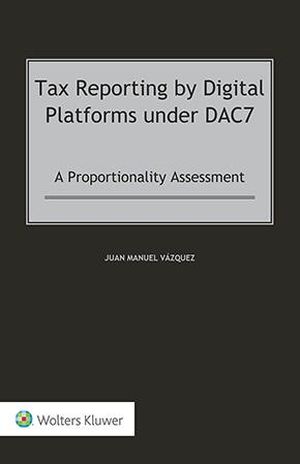
Tax Reporting by Digital Platforms under DAC7 is a book furnishing a comprehensive and in-depth assessment of the proportionality of DAC7 rules for digital platforms. It examines whether these rules are aligned with the general European Union (EU) law principle of proportionality from both a policy and legal perspective and when this is not the case, it identifies potential improvements that could be made to ensure such alignment.
In early 2021, the EU introduced a standardized tax reporting requirement for digital platforms through a Council Directive known as DAC7. The rules introduced by this Directive require third-party operators of digital platforms to systematically collect, verify, store, and report specific personal and transactional data about platform sellers to the tax authorities of the Member States. This data is then automatically exchanged between tax authorities. While DAC7 rules for digital platforms pursue a worthy goal (e.g., combating tax evasion) which, at first glance, would justify a public intrusion into the private sphere of both platform sellers and third-party platform operators, a key question that arises is whether such intrusion does not exceed what is necessary for the public interest. This essentially concerns a matter of ‘means’ and ‘ends’ or, in other words, of proportionality.
What’s in this book:
This book covers the following issues and topics:
How this will help you:
In its comprehensive, systematic, and in-depth proportionality assessment of DAC7 rules for digital platforms, this book will prove to be of help and guidance to practitioners, administrators, academics, the judiciary, policymakers, and citizens navigate these rules, their practical application, and their policy and legal implications.